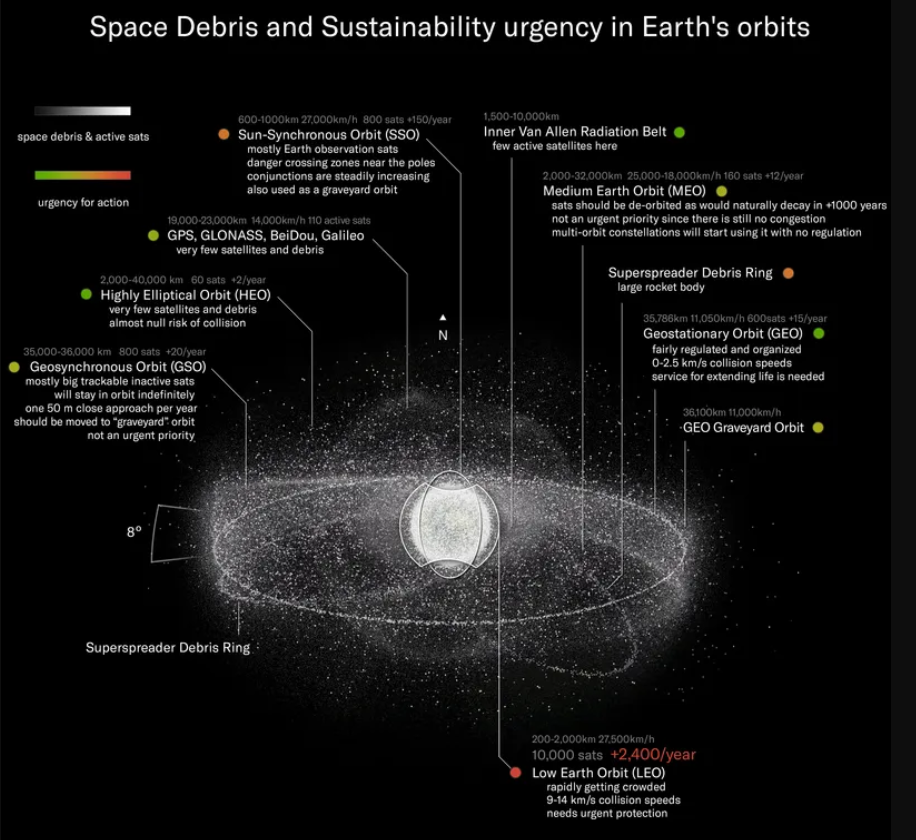Climate impact of exploring space passing below the radar
(Source – The Hindu, International Edition – Page No. – 7)
| Topic: GS3 – Science and Technology |
| Context |
|
The Environmental Cost of Space Exploration
- The increasing reliance on space technology for vital functions like climate monitoring necessitates urgent action to address the environmental impact of space activities.
- The growing number of satellites in orbit and the frequency of rocket launches contribute to atmospheric pollution and the accumulation of orbital debris, posing risks to the sustainability of space activities and our ability to monitor Earth’s climate.

| How Rockets Affect the Environment |
|
| Dangers of Orbital Debris |
|
Barriers to Space Sustainability
- Lack of International Regulations: The absence of specific international regulations addressing the environmental impact of space activities hinders efforts to mitigate emissions, manage debris, and ensure responsible use of space. This regulatory gap needs to be addressed to promote sustainable practices.
- Technological Challenges: Solutions like reusable rockets, cleaner fuels, biodegradable materials, and debris removal technologies hold promise but face challenges related to cost, efficiency, and technological maturity. Overcoming these challenges requires further research and development.
Achieving Sustainability
- Global Cooperation: International cooperation is crucial to establish enforceable standards for emissions, debris mitigation, and data sharing. Organizations like the Committee on the Peaceful Use of Outer Space (COPUOS) can play a vital role in developing and implementing these standards.
- Investment in Green Technologies: Governments and private companies must prioritize funding for research and development of sustainable technologies, including green propellants, debris removal systems, and biodegradable materials for satellites.
- Policy Incentives: Financial incentives, such as subsidies and tax breaks, can encourage private companies to adopt sustainable practices. Conversely, penalties can discourage unsustainable behavior.
Conclusion
- The future of space exploration depends on our ability to balance technological advancement with environmental responsibility.
- By promoting international cooperation, investing in green technologies, and implementing effective regulations, we can ensure that space activities remain sustainable.
| PYQ: What is India’s plan to have its own space station and how will it benefit our space programme? (150 words/10m) (UPSC CSE (M) GS-3 2019) |
| Practice Question: Analyze the environmental challenges posed by the growing reliance on space technology. Discuss the role of international cooperation and technological advancements in ensuring the sustainable exploration and utilization of outer space. (150 Words /10 marks) |
